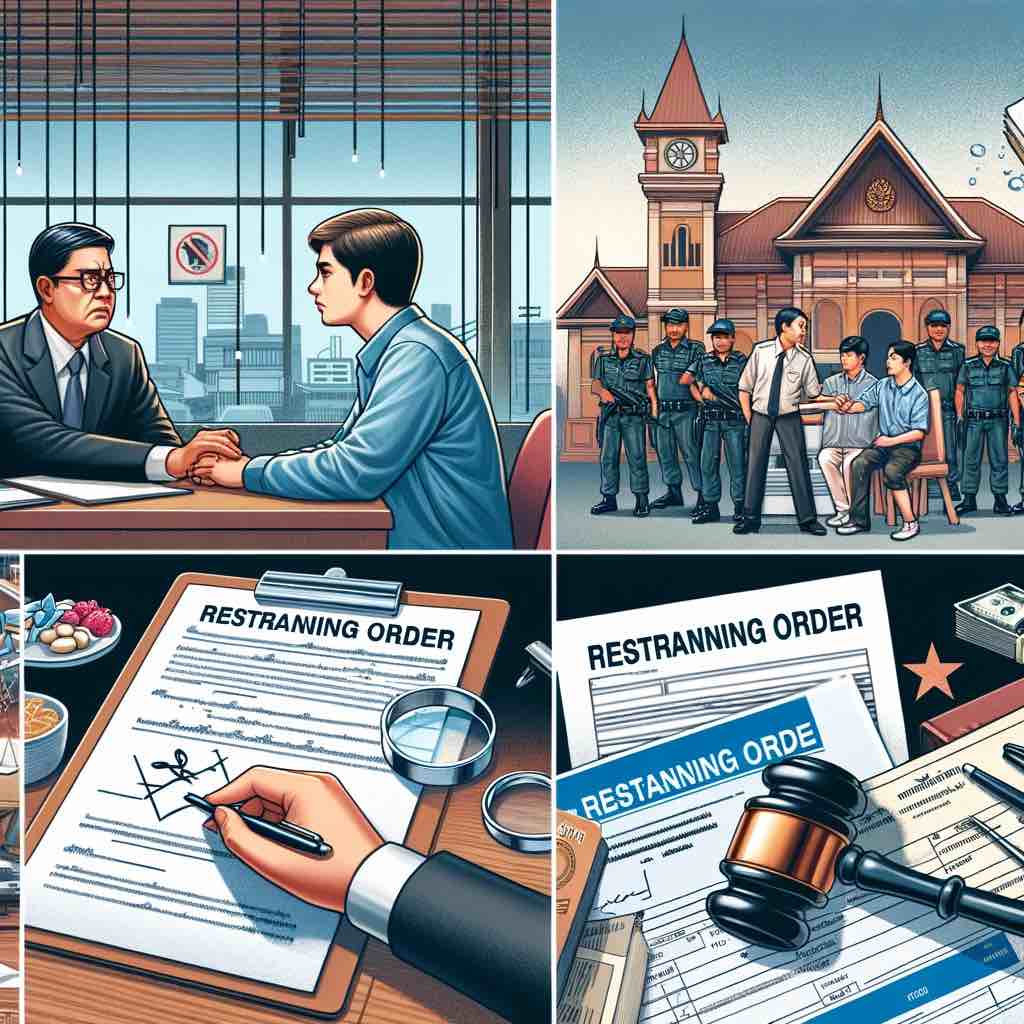Restraining Order in Thailand
Did you know that you can file for a restraining order in Thailand? Most people are not aware of this, thinking that it is more of a Western concept. However, according to the Civil and Commercial Act of Thailand, you can file for a restraining order against someone else in Thailand. The reasons for this can include assault, abuse, threats, constant harassment, or other similar acts. In order to successful get a restraining order from the court in Thailand, you will need to have an expert lawyer (like our family law experts at TFL) draft an indictment and attach the relevant evidence. Then, the court will hold a hearing to determine if the restraining order should be granted. If so, then the court will grant the restraining order, which protects you from the abusive behavior of the person you are filing against. Below is our guide to restraining orders in Thailand.

Understanding the Process of Obtaining a Restraining Order in Thailand
In Thailand, the concept of a restraining order, while not as commonly recognized as in some Western countries, is very much a part of the legal system. This protective measure is designed to safeguard individuals from various forms of abuse, harassment, or threats. Navigating the legal framework to obtain a restraining order requires an understanding of the Thai Civil and Commercial Code and, often, the assistance of a skilled family law attorney.
The Legal Framework for Restraining Orders
Under the Thai Civil and Commercial Code, individuals have the right to seek legal protection against someone who poses a threat to their safety or peace. This encompasses a wide range of situations, from physical assault and abuse to constant harassment or threats. The law recognizes the importance of personal safety and peace of mind, allowing for legal interventions in cases where these are jeopardized.
Filing for a Restraining Order: The Procedure
To file for a restraining order, the process typically begins with drafting a formal indictment. This legal document should clearly outline the reasons for seeking the order, including detailed accounts of the incidents or behaviors that have led to this request. It is crucial that this document is thorough and accurately reflects the situation, as it forms the basis of the court’s decision-making process.

Evidence: The Backbone of Your Case
One of the most crucial aspects of filing for a restraining order is the presentation of relevant evidence. This may include testimonies, medical records, police reports, or any other documentation that supports the claims made in the indictment. The quality and relevance of the evidence can significantly influence the outcome of the hearing.
The Role of Expert Legal Assistance
Given the complexities of the legal system, particularly for those unfamiliar with Thai law, enlisting the services of an expert family law attorney is highly advisable. A knowledgeable lawyer can ensure that the indictment is appropriately drafted, the evidence is compelling, and the legal nuances are navigated efficiently. Legal firms like TFL specialize in these matters and offer invaluable guidance and support throughout the process.
The Court Hearing: A Critical Juncture
Once the indictment and evidence are submitted, the court will schedule a hearing. This is a critical stage where both parties have the opportunity to present their case. The plaintiff must convincingly demonstrate the need for protection, while the defendant has the chance to respond to the allegations. The court’s decision hinges on the arguments and evidence presented during this hearing.
Granting of the Restraining Order
If the court is convinced of the necessity of a restraining order, it will grant one to protect the plaintiff from further abusive behavior. The specifics of the order, including its duration and the exact restrictions imposed on the defendant, are determined based on the circumstances of the case. It is essential to understand that violating a court-ordered restraining order can result in significant legal consequences for the defendant.
Enforcement and Monitoring
Once a restraining order is granted, its enforcement becomes a priority. The authorities are responsible for ensuring that the order is adhered to and that the plaintiff’s safety is maintained. In cases where the order is violated, immediate legal action can be taken against the defendant. This may include arrest, fines, or other penalties as prescribed by law.
Conclusion: A Path to Safety and Peace
Obtaining a restraining order in Thailand is a legal recourse available to those who find themselves in threatening or harmful situations. While the process can be complex, it offers a path to safety and peace for those in need. With the right legal assistance and a solid understanding of the necessary steps, individuals can effectively navigate the system to secure the protection they require. In doing so, they uphold their rights and dignity, ensuring a safer environment for themselves and potentially others in similar situations.



